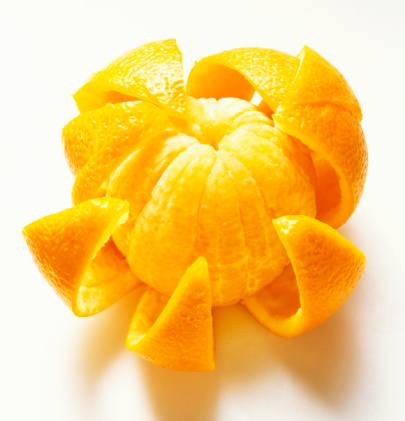Note: This is post #15 in our series on Tafseer of Juz ‘Amma.

Allah begins Surah Aadiyaat by saying:
وَالْعَادِيَاتِ ضَبْحًا
فَالْمُورِيَاتِ قَدْحًا
فَالْمُغِيرَاتِ صُبْحًا
فَأَثَرْنَ بِهِ نَقْعًا
فَوَسَطْنَ بِهِ جَمْعًا
Translation: By the ‘aadiyaat, when they pant, and the muwriyraat striking (when their hoves strike the ground and make sparks), and the mughiyraat, at dawn (when they raid), stirring up thereby [clouds of] dust, arriving thereby in the center collectively, …
This is a qasam (oath), a big oath that spans five ayaat. I’m going to dive into word-for-word translation, because no translation can do justice (without paragraphs of brackets).
‘Aadiyaat (عَادِيَات) are horses (plural: sound feminine plural, in fact). Not those horses you see Canadian Mounties riding; but real, true, WAR horses. If you’ve ever seen war-horses (send us a picture!), they have a special, particular intensity to them.
Dabhaa (ضَبْحًا) means to pant. Pant meaning, if you’ve ever run in a 100-meter race, or tried to run until you’re tired, and you start breathing heavily through your mouth–that’s panting. Why are the ‘aadiyaat panting? Because they are charging into battle.
You’ll see lots of war concepts here. The Arabs at the time of the Prophet (salallahu alayhi wa sallam) knew these things very, very well; and when Allah testifies, these things he testifies by–nobody would deny them.
Muwriyaat (مُورِيَات) are also war-horses–the ones that strike. Strike meaning, when they run, their hooves strike up sparks on the ground. I definitely don’t encourage watching movies, so if you’ve ever read seerah stories, or perhaps Lord of the Rings, or similar books, you might find these kinds of concepts in their battles.
Mughiyraat (مُغِيرَات) are the raiding horses. In the time of the Prophet, they would have raids; you would see a whole army of horses and riders sweeping into a city, and they’d kill everybody and destroy it. Mughiyraat are those raiding horses that they rode.
Interestingly, there’s a companion named Mughiyrah (radiallahu ‘anhu). His parents named him after a war horse. They had great aspirations for him! Think about that, o you Muslim parents! (This is because, as the Arabs say today–we name our daughters for ourselves (eg. sweet, flowery names), and our sons for our enemies (eg. Asad, ‘Uthman, Mughiyrah, etc.)
Subhaa (صُبْحًا) is to raid at dawn. As we saw in Surah Lahab, when the Arabs would attack, they would attack at Fajr time, when MOST of the people are sleeping. Also, very well-known from the seerah, is that the Muslims, when they attack (subhaa), they wait until Fajr; and if they hear the adhaan coming out, they abort mission. Think about that, o you Muslims who skip Fajr! If the community was lax, and they missed Fajr, they would be raided and considered non-Muslims. May Allah make us all strong to pray Fajr (ameen ya rabbi!)
Skipping ayah four–in ayah five, Allah says wasatna (وَسَطْنَ). This word is feminine plural third-person (for all you Arabic students out there), because it refers to horses. Wasata is to go into the middle; like the famous hadith about Az-Zubayr ibn Awwam, who went, by himself, into the middle of the Roman army to fight. That’s the most furious part of the fighting–going from the front lines, into the middle of the enemy, jam’aa (جَمْعًا) together.
And these ayahs don’t speak of corrupt horses going on an oppressive mission–they mean mujahideen horses fighting to raise the banner of “Laa ilaaha illa Allah.” So what then of the riders? They, too, get this great and honorable status–that Allah testifies by them.
As with any oath, we always need to ask–ya Rabbi, what are you testifying to? The answer is …
إِنَّ الْإِنسَانَ لِرَبِّهِ لَكَنُودٌ
Translation: Indeed, mankind, to his Lord, is ungrateful. [Surah ‘Aadiyaat, verse 6]
If there was ever a motto that you could take as a model for your life, this would be it–that human beings are ungrateful. (“His” lord because insaan is, strangely enough, a singular word in Arabic.)
One personal reflection I had: If you remember past surahs we discussed, you might have someone praying every day for some blessing (new car? house? wife? kids?), getting up for Qiyaam and crying in their sujood … and when they get it? They cut off their connection to Allah and forget all their ibaadah. Think about this–and I am among the first and most guilty of this–when’s the last time you prayed two rakaat of shukr, for anything? Or donated, or performed some other deed, as thanks? Truly, sadaqa Allah–He spoke the truth, we ARE ingrateful; may Allah protect us from that quality and increase us in our shukr (thanks). AMEEN!
Notice also, even AFTER five verses of testification, Allah uses “inna,” a word of emphasis, to emphasize the point even more! Subhanallah!
Allah continues, in verses 7 and 8:
وَإِنَّهُ عَلَى ذَلِكَ لَشَهِيدٌ
وَإِنَّهُ لِحُبِّ الْخَيْرِ لَشَدِيدٌ
Translation: And indeed, he/He is to that a witness. And indeed he is, in love of wealth, intense.
Verse 7, “innahu … lashadeed,” you can translate as “he is a witness to that.” Which he? It could mean He (Allah azza wa jal), or he (insaan). Tafseer ibn Katheer cites both sources from ‘ulama among the sahaba and tabi’een.
So it either means … that Allah is watching, witnessing, over our ungratefulness. Or that we, humans, ourselves, witness it, against ourselves and each other. Allahu ‘alam.
And verse 8: he is shadeed, intense, in his love of khayr. Khayr here means wealth; one reason why people cannot just learn the Arabic language and give tafseer. And really, if you look at how people cheat, and scam, and trick others, for a few measly (or a few thousand, or million) bucks … it really strikes you that we, humans, ARE severe in our love for wealth.
The Messenger of Allah once said: “If the son of Adam had a mountain of gold, he would ask for another; and nothing will fill him up (in terms of desiring wealth) except dust (of his grave).” [Saheeh Bukhari, Volume 8, Book 76, Number 447]
Even millionaires … if you ask people, “how much money would you need, and then you’ll feel like you’ll never need money again?” most people would say one million dollars. But if you ask millionaires, they’re always trying to make “their next million.” Subhanallah.
And where is all this going? Allah says,
أَفَلَا يَعْلَمُ إِذَا بُعْثِرَ مَا فِي الْقُبُورِ
Translation: But does he not know that when the contents of the graves are poured forth? …
Muhammad Alshareef mentions regarding this ayah, that if you take a sister’s purse and dump it upside-down, a lot of things will fall out of it masha’Allah–maybe some change, coupons, some lipstick, pins, etc. Many things, some of them private. In the dunya, you can hide the sins, the deeds you don’t want–like a nice purse, concealing some illicit items. But in the hereafter … the graves will be dumped out. Subhanallah.
Then Allah says:
وَحُصِّلَ مَا فِي الصُّدُورِ
Translation: And that within the breasts is obtained, …
Hussila (حُصِّلَ) doesn’t just mean “obtained,” “made apparent,” etc. but it means … peeled.

This is your heart on the Day of Judgment.
If you have an orange, and you look at the outside–do you know what’s inside? No. Well, with oranges, you have a good idea of what it might be; but do you know exactly, specifically, how much of it will have the white part, how many slices, what spoiled or rotten areas will appear on it? No. But once you peel it, everything becomes clear, obvious, apparent to everyone around.
On that day, when the hearts will be peeled…
إِنَّ رَبَّهُم بِهِمْ يَوْمَئِذٍ لَّخَبِيرٌ
Translation: Indeed, their Lord with them, that Day, is [fully] Acquainted.
On that day, Allah knows (and He knows now, too). And on that day, He will repay us fully for everything we used to do–hidden or apparent.
Thus concludes Surah ‘Aadiyaat. Wallahu ta’ala ‘alam.
Action Items:
- Contemplate the Day of Judgment. The more details you see in the Qur’an and sunnah, the more real it is to you. Put yourself there. See, hear, feel what’s going on around you. Always do this when you read about that day–this will make the verses hit your heart.
- Be thankful. Make a list of three blessings Allah blessed you with, right here and now. Pray two rakahs of shukr, or donate, in thankfulness to your Lord, the most generous.
References:
- Touched by an Angel: Tafseer of Juz ‘Amma. By Muhammad Alshareef. 2009.
- Tafseer ibn Katheer online